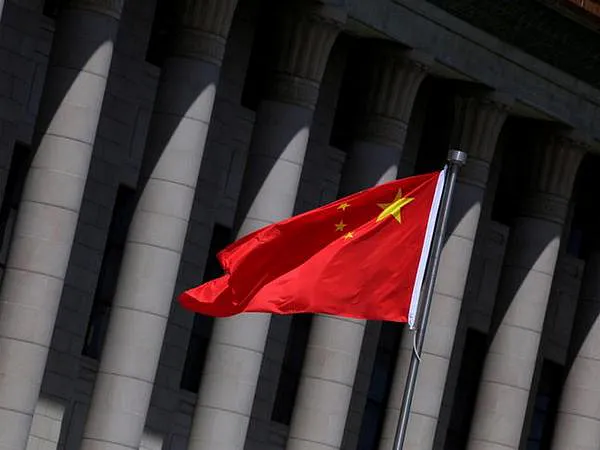By Alberto Dolli
Beijing is highly worried about Japan and the US’ move on the Taiwan Strait and it fears the duo’s challenge to its One China policy will increase in coming days and months. Taiwan is an island de facto independent but which Beijing considers part of one China.
On September 26, a Taiwanese delegation was invited by the Fumio Kishida government to attend the state funeral of Japanese Prime Minister Shinzo Abe in Tokyo. Although the Chinese delegation was also among invitees for the state funeral of Japan’s longest serving Prime Minister, Beijing found it awkward to adjust to the situation.
China issued statement on September 27, stating “Japan needs to observe the principles set out in the four China-Japan political documents and the solemn commitments it has made, handle the relevant matters in strict accordance with the one China principle and refrain from providing any platform or opportunity for ‘Taiwan Independence’ separatist forces to engage in political manipulation.”
But Japan, like its Quad (an alliance is made also with Australia and India) partner, the US, seems to be in no mood to give any kind of relief to Beijing when the geopolitical situation in the world in the wake of Russia’s invasion of Ukraine, is moving very fast. Engaged in an acrimonious territorial dispute with China over Senkaku Islands in the East China Sea, Japan is gearing up to present a stronger posture in the Taiwan Strait at the time when Tokyo and Beijing are celebrating 50 years of their diplomatic relations.
Japanese PM Kishida held talks with US Vice President Kamala Harris over the current situation in the Taiwan Strait when the latter visited Tokyo to attend the state funeral of Shinzo Abe. Both PM Kishida and the US Vice President “discussed the People’s Republic of China’s recent aggressive and irresponsible provocations in the Taiwan Strait, and reaffirmed the importance of preserving peace and stability across the Taiwan Strait,” the White House said in a statement. Allegedly, Vice President Kamala Harris called the US commitment to Japan’s security “ironclad.”
In fact, for Japan, a democratic Taiwan presents a political and strategic frontier for its security. If Taiwan is invaded by China which continues to ratchet up tension along the 180-km wide Strait, Japan fears its security will be affected. To counter China’s threat in the region, the Kishida government aims to double the country’s defence budget over five years from this year’s $39.5 billion. In comparison, Japan’s planned defence hike will be still five times far behind China which, as per Janes’ Defence Weekly, announced a $229.5 billion budget for defence in 2022, a nominal 7.1 percent increase from the 2021 budget.
Several analysts feel that Taiwan presents a life and death challenge to Japan and to prevent the self-ruling island from its forced unification by China, Tokyo could forgo its post-World War II “pacifist” posture and become a normal state. From 2015 onwards, Japan has cut many of the shackles that restrained its Self-Defence Forces since the end of World War II.
It is part of high-profile Malabar naval drills; its Self-Defence Forces participated for the first time the US-Indonesia’s conducted Garuda Shield military exercise 2022 in Sumatra and Riau Islands from August 1 to 14. Participated by Australian and Singaporean contingents also, Garuda Shield military exercise took place eight months after diplomatic sparring between Jakarta and Beijing over disputed territorial waters in the South China Sea and five days after Indonesian President Joko Widodo’s July 25- 26 visit to China.
China called the military drills a threat to regional stability.
This year alone, Japan’s Self-Defence Forces participated in 50 percent more joint exercises with the US military than the same period of 2021. The two countries held their last joint air force drills around Japan’s Okinawa close on the heels of China kicking off drills around Taiwan in the first week of August. According to Japan’s Ministry of Defence, Tokyo and Washington DC held a total of 51 bilateral exercises in 2022 as of the end of July, compared with 34 in the first seven months of 2021.
By undertaking such wargames with like-minded countries, Japan’s aim is to strengthen its military capabilities. At the same time, Tokyo has increased its tone around the peace and stability factor in the Indo-Pacific region. A number of Japan’s joint statements with other countries have focused on “peace and stability” in the Taiwan Strait.
However, amidst such developments: Japan has not changed its policy towards Taiwan nor has ever announced its willingness to defend the self- ruling island.
Yet it apparently keeps stoking China’s ire. On August 22, a Japanese political leaders’ delegation headed by Japan’s House of Representatives Keiji Furuya landed in Taiwan on a three-day visit. It took place close on the heels of US House of Representatives Speaker Nancy Pelosi visit and flood of other US and Australian political delegations’ trip to Taiwan.
These visits were not undertaken for merely posturing purposes, but to send a clear message to China that these countries stand with Taiwan. The US has been blunter in this regard. On September 18, President Joseph Biden said in an interview with CBS 60 Minutes that US forces would defend Taiwan in the event of a Chinese invasion – considered as the most explicit statement so far on the issue. Though the President had also stated on Taiwan’s defence during his visit to Japan to attend the second in-person summit of Quad in May, yet American policy of strategic ambiguity persisted. But now it appears, the US has torn asunder its long-held policy of strategic ambiguity on Taiwan by making clear that it would respond militarily to an attack on Taiwan.

